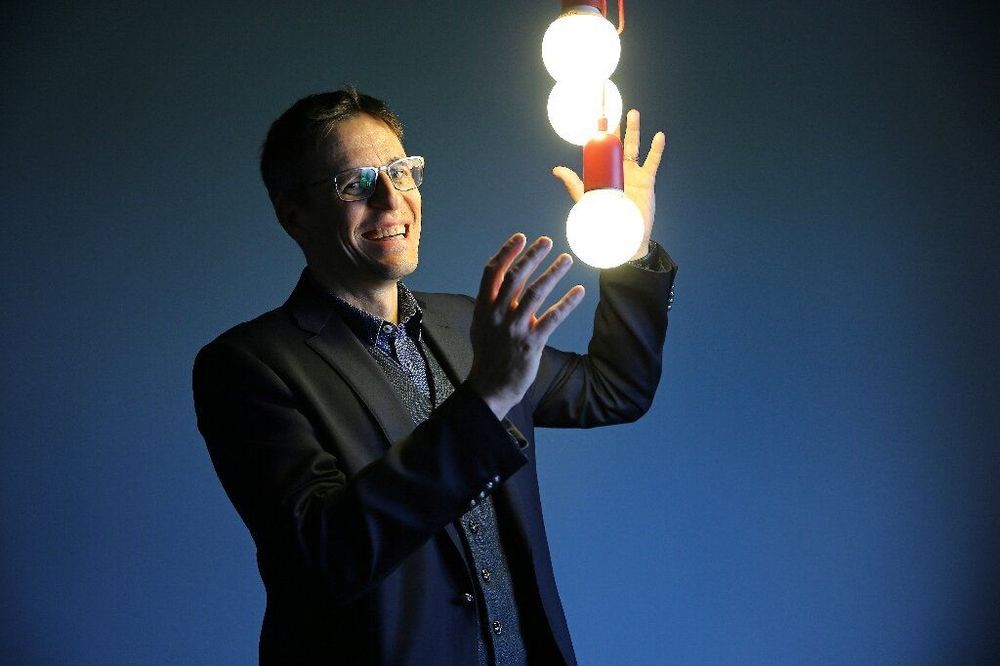This could be “mad cow disease” all over again.



When it comes to regeneration, some animals are capable of amazing feats — if you cut the leg off a salamander, it will grow back. When threatened, some geckos drop their tails as a distraction, and regrow them later.
Other animals take the process even further. Planarian worms, jellyfish, and sea anemones can actually regenerate their entire bodies after being cut in half.
Led by Assistant Professor of Organismic and Evolutionary Biology Mansi Srivastava, a team of researchers is shedding new light on how animals pull off the feat, and uncovered a number of DNA switches that appear to control genes for whole-body regeneration. The study is described in a March 15 paper in Science.


In a certain sense, physics is the study of the universe’s symmetries. Physicists strive to understand how systems and symmetries change under various transformations.
New research from Washington University in St. Louis realizes one of the first parity-time (PT) symmetric quantum systems, allowing scientists to observe how that kind of symmetry—and the act of breaking of it—leads to previously unexplored phenomena. The work from the laboratory of Kater Murch, associate professor of physics in Arts & Sciences, is published Oct. 7 in the journal Nature Physics.
Other experiments have demonstrated PT symmetry in classical systems such as coupled pendulums or optical devices, but this new work in Murch’s lab, along with experiments in China by Yang Wu et al., reported in Science this May, provides the first experimental realization of a PT-symmetric quantum system.

As a student astronomer scanning the skies with homemade instruments a quarter of a century ago, Didier Queloz spent months doubting the data that led him to an inescapable conclusion: he’d just discovered the first planet outside Earth’s solar system.
The Swiss scientist had spent much of his PhD research refining techniques to detect so-called exoplanets, which until one fateful night in October 1995 had previously only existed in the realm of science fiction.
Queloz and his colleague Michel Mayor, who on Tuesday were awarded the Nobel Prize for Physics for their pioneering work, had already overcome a number of obstacles in their galaxy-wide search.


With a self-guiding drone hovering over your shoulder, a not-too-humanoid robot sidekick as your wingman, and a four-legged fetch ‘bot trotting along beside, the day when you can surround yourself with a whole gaggle of AI-powered helpers is already here … even if it’s still the wee hours of the early morning.
Whether by air, on wheels, or even on padded little robot paws, the technology that drives our mechanized helpers is reaching that autonomous point at which the droids are able to think for themselves as they carry out their limited missions. Sure, they’re not quite ready to cross platforms and begin communicating with one another just yet, but at least they all can communicate with you — which pretty much makes you the star character in your budding little electronic entourage.

Dive into the subatomic world, into the heart of protons or neutrons, and you’ll find elementary particles known as quarks. Measuring the mass of these quarks can be challenging, but new results from the CMS collaboration reveal for the first time how the mass of the top quark – the heaviest of six types of quarks – varies depending on the energy scale used to measure the particle.
The theory of quantum chromodynamics, a component of the Standard Model, predicts this energy-scale variation, known as running, for the masses of all quarks and for the strong force acting between them. Observing the running masses of quarks can therefore provide a way of testing quantum chromodynamics and the Standard Model.
Experiments at CERN and other laboratories have already measured the running masses of the bottom and charm quarks, the second and third heaviest quarks, and the results were in agreement with quantum chromodynamics. Now, the CMS collaboration has used data from high-energy proton–proton collisions at the Large Hadron Collider to chase out the running mass of the top quark.
